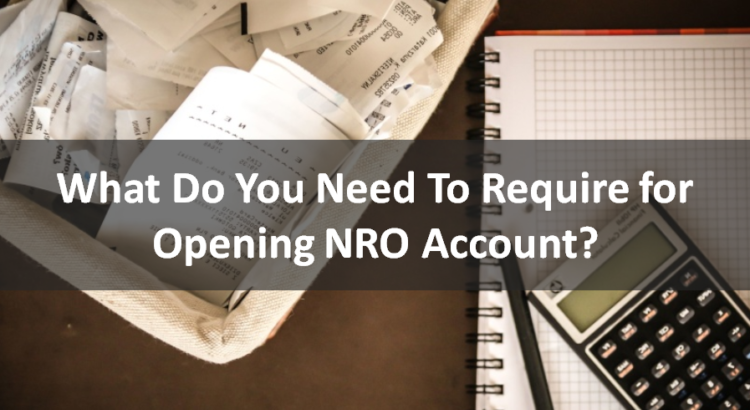If you’re going to the foreign country, check your bank status.
Have you changed it?
Do you know the overall changes that you require to do with your bank account books?
First, you should know about the NRO account. It stands for the Non-Resident Ordinary (NRO) Rupee A/c. It is a necessity to close any kind of saving, current or fixed account. But you need to have an account called the NRO a/c. Rather than closing an old account, you should change it into this one.
What’s an NRO A/c?
The Indian government orders banks to facilitate a saving account to NRIs. It lets the PIOs (Persons of Indian Origin) and OCIs (Overseas Citizen of India) to do banking through the NRO banking channel. Being a saving account, the immigrant Indians can stockpile their income via, let’s say, rent, dividends, pension from abroad and so on. It offers convenience in managing and keeping your money safe. Several banks, like HDFC, ICICI, SBI, and much more, open this non-resident ordinary rupee account. However, the terms and conditions vary from bank to bank.
Apart from the remittances between India and foreign, it allows local payment. Unlike an NRE or Non-Resident External Rupees account, you can keep the deposit safe in Indian currency.
Here is the list of ‘what-to-do’ before taking adieu from the home country:
- Change the Status:
As stated above, this NRO account ensures smooth, seamless and legible transactions. The Indian diaspora in any country can manage deposits and investment in India through it. You must know that the banks remit foreign currency. If you have a joint account, it’s well and good. Many banks allow you to have it as per RBI rules. But the joint account holder should be an Indian. Even, repatriation is permissible for such a/c holders. Make the mindset that such account permits certain repatriation not a full annual amount.
- What Documents are Required:
For opening it, you must provide your valid non-resident proof. That document can be a tax return file, or any other income proof. It’s so because the tax laws enforce scripting NRI status on the document. The RBI strictly bars the non-residents from keeping any residential bank a/c.
- Proof of Residence & Status:
Being an NRI, you’ve to provide some documented proof. This is how the conversion process of resident account into non-resident account initiates. Catch on the list of the proofs that you can submit:
- Identity proof, like Ration Card, PAN Card, Voter ID etc.
- NRI status proof, like appointment letter of foreign employer or student visa
- Proof of foreign address
- Two photographs
- Proof of Indian Residency:
What would you show to prove that you’re a non-resident?
As I dropped a clue in the second point of the former section, it can be any letter of foreign employment. If you’re going for studying in abroad, a student visa can be that proof. And if you’re a spouse of the NRI, the dependent visa status can do the trick. Besides these, a photocopy of the resident permit offshore can help you to prove the changed status.
All aforementioned documents should be notarized. Subsequently, the applicant needs to go to the attestation service in India as well to authenticate the evidences. This is why the bank authority accepts all these documented evidence.
- Attestation:
When you apply for the visa or passport, every document requires document. It’s already stated that the applicant has to provide the Indian as well as foreign resident proof. When you come with these document proofs, they require to be attested.











